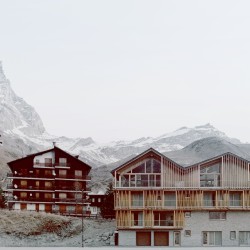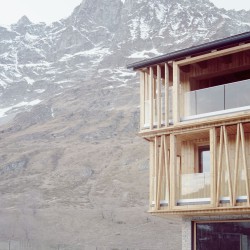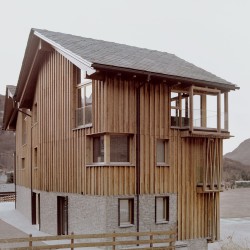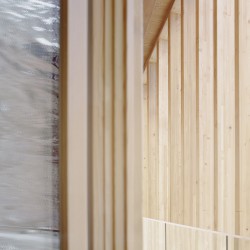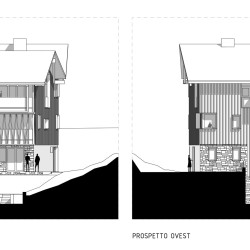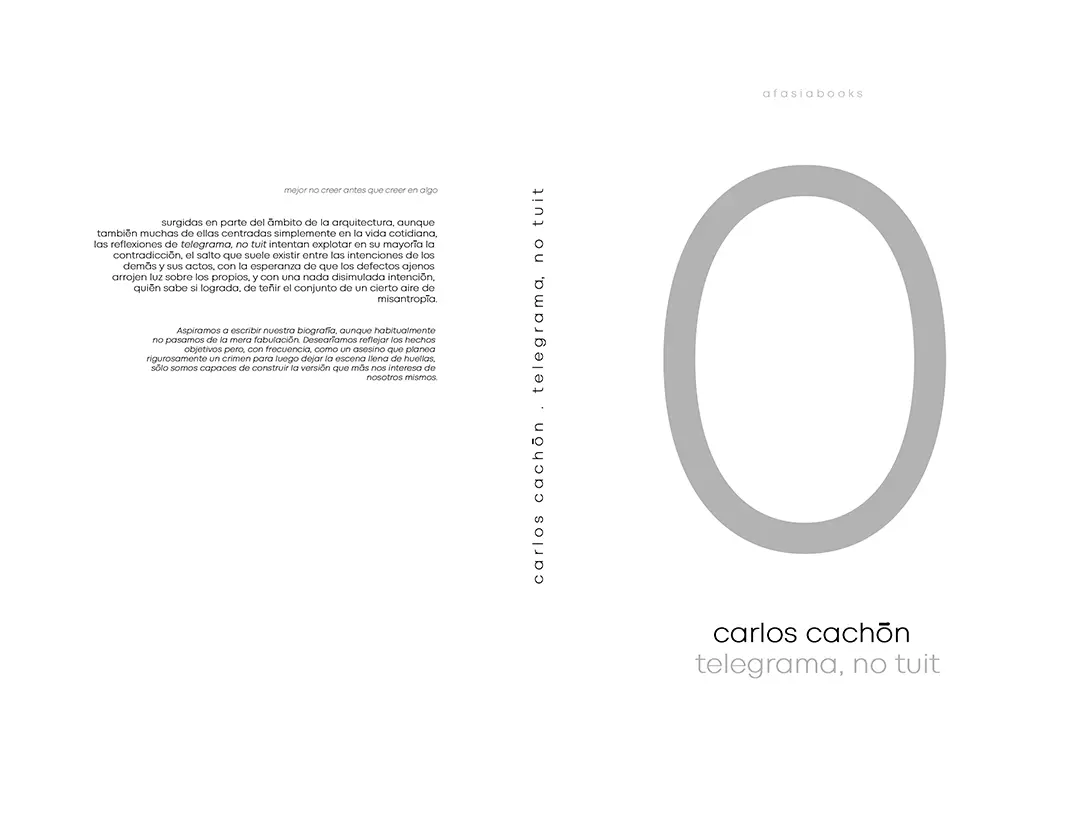LCA luca compri architetti . photos: © Simone Bossi . + archdaily
The project, called Chalet Blanc, was born from the idea of a young couple who decided to build a small sustainable chalet at the foot of the Cervino. The building is made with a prefabricated wooden structure and reinterprets the ancient chalet in a contemporary way. The volume of the house is characterised by the inverted “W” roof, which is a tribute to the skyline and the majesty of the peaks that crown the valley, and represents the attempt to initiate a direct dialogue with the wonder of the surrounding nature.
The broken line of the roof is taken up, in plan, by the design of the balconies, creating an organic design as a whole. The elevations are treated differently from each other, depending on the orientation and internal functions of the building. The openings of the rooms and the large windows of the social spaces on the top floor open to the south.
All the rooms have access to the terraces designed in a zig zag pattern, partially shaded by wooden brise soleil. To the northwest, to protect the chalet from the harsh climate, the facades are decidedly more closed, with no large openings and protrusions. On these sides, the walls are distinguished with rhythmic ribs that are made with vertical wooden beams. The windows and the respective frames vary in size and open more freely and asymmetrically, framing glimpses of the landscape. Finally, the east facade is recognisable by the large loggia and frame around it on the attic floor.
The wooden structure of the building rests on a masonry base finished externally with dry stone. The base, in addition to housing a three-room apartment, is intended for garage, technical room and ski storage. Access to the accommodation is on the north side on the first level; you are immediately greeted by a small living room that also serves as a hall. On the same floor we find on one side a first bedroom and on the other side a spa with whirlpool tub, emotional showers, a relaxation room, sauna and Turkish bath. The wellness area overlooks the garden and the large stone-paved solarium.
The upper floor is intended exclusively for the reception with the presence of 4 bedrooms, all with bathroom and large windows facing south; the top floor is characterized by large windows overlooking the valley and the high mountains that surround it; in this space there is the living room, the dining room, the kitchen and a large fireplace with a stone seat and a raw iron chimney; on the east side a covered loggia is intended for a convivial space for reading and contemplation. The architecture has a sustainable soul. The chalet was built using mostly natural materials from renewable sources, such as wood that has reduced consumption and very low CO2 emissions.
The architecture is balanced and in harmony with the context that welcomes it; the facades and volumes are characterized by the variation of solids and voids and by the vibrating in the light of the wooden brise soleil and of the vertical beams that draw the north side. The attempt was to work with the aim of creating a building in close dialogue with the mountains, which would keep domestic and welcoming spaces inside; environments with a high degree of internal comfort, made with natural and ecological materials.
_



